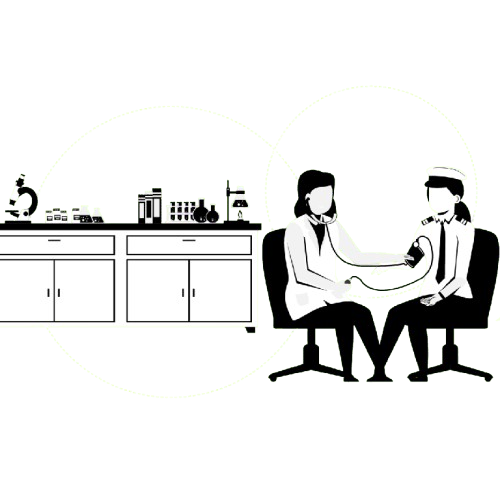The Ground School Phase Of Pilot Training
The Worst Part About Commercial Pilot Training?
Ground school is the first phase of commercial pilot training. For many, it is the most difficult.
No matter the FTO you pick, ground school courses usually have the same structure.
If you embark on the integrated route, ground school runs over five to eight months and follows a steep learning curve.
It should be noted that social life is a myth during this stage. The more effort you put in, the more you will get out.
Why Is Ground School So Important?
It’s essential to pass all your ground school exams the first time and with a high pass mark too.
More than two or three fails could delay your job offer significantly compared to someone with first-time passes.
It may also mean that you will be ineligible to be recruited by several airline partners of the flight school.
So study hard, put your social life aside for the period and fully dedicate yourself. If you do this, averages of over 90% are achievable.
You will need to study hard and understand each subject well.
You will be able to test your knowledge and understanding by using the ‘question bank’, which, as the name suggests, is an online ‘bank’ of exam questions.
Some subjects have thousands of different questions of varying degrees of difficulty. You should not just rely on the question bank alone.
You need to take notes and pay attention in class as well. If you have any questions, ask them. Once you feel like you grasp all the content you will be tested on, utilise the question bank.
How To Pass Ground School And Your Pilot Training
Your instructors should be able to inform you which subsection of each subject appears most in the exams – use this to structure your revision.
These subsections should receive the majority of your study time.
If the exam is a combination of 100 questions, but only five are in a particular subsection, giving this topic the majority of your time and energy would be counterintuitive.
It’s imperative to study hard, but even more important to study smart.
Some pilot schools will provide you with shared housing whilst you complete this stage of training.
For example, I shared a house with five other members from my course. Work together and play to each other’s strengths as there will be some subjects that some are better at than others.
For example, after finishing my A levels, I was much better at the maths and physics subjects.
I could therefore use this knowledge to help people with a lesser understanding of these topics. Topics such as Mass Balance and Performance. Subjects that are more involved when it comes to maths and calculations.
No matter which flight training school you pick, the ground school follows a very tight schedule and is one of the busiest parts of the training course.
The content you learn isn’t tough to grasp. The tricky part is getting through the sheer volume of content that can potentially be present in the exam.
Here’s a list of subjects you will cover:
-
General Navigation
-
Performance
-
Aircraft General Knowledge
-
Principles of Flight
-
Communication 1
-
Communication 2
-
Radio Navigation
-
Mass and Balance
-
Performance
-
Operations
-
Flight Planning
-
Meteorology
-
Human Performance
-
Air Law
Ground School On The Modular Pilot Training Route
If you decide to follow the Modular route instead of the Integrated route, these exams can be spread out over an extended period to give you more home life.
You can study for and take the exams as and when it suits you to make them more manageable.
Whilst this allows for a more personal life, I strongly suggest that you keep to a structure. Too much time between different subjects can be harmful as some topics complement others.
Pick a realistic time frame that will allow you to achieve your life commitments but also complete the 14 exams reasonably and keep you in the study/educational mindset.
For example, two pilot cadets joined us at the end of our ground school phase. They had taken the 14 ATPL exams over a year whilst continuing to work a full-time job.
This suited them very well as it meant financially they could keep earning money whilst completing the ground school phase.
In addition, these pilots achieved a job with the same airline and in the same time frame as the rest of us on the integrated course, so this is a viable route.
My Experience Of Ground School
My experience of ground school was a mixed bag. As I mentioned, I enrolled on the Integrated course after finishing my A levels, meaning that I still had a system that worked well for me when it came to studying, as I hadn’t been away from education for too long.
Some on my training course began their pilot training after being in a different career for the past 5-10 years.
I’m sure they would be the first to tell you that the transition back to learning was a far less fluent experience.
However, if you are making a career change, don’t let this put you off.
After just a few weeks, they soon picked up the techniques and methods that worked best for them and allowed them to complete all 14 exams.
A ‘Typical’ Day Of Pilot Training Ground School
A typical day involved waking up around 7 am, indulging in a big breakfast to set me up for the day and then heading into the training centre.
The drive was about a 15-minute journey from where we were living. Despite all of us having our cars, we would share each day.
On arriving at the training centre, the twenty cadets on our course would meet in the cafe for a coffee before arriving at the classroom at 8 am to begin studying.
Our days were divided into different subjects – we wouldn’t spend an entire day on just one subject.
Some of the topics are far, far more interesting than others.
Air Law was undoubtedly the most tedious subject for me. Indeed, many subjects included the information required to pass the exam but were far from relevant or valuable in day-to-day life as a commercial pilot.
Other subjects, however, like Principles of Flight and Aircraft General Knowledge, were fascinating.
These subjects made me feel like I was on the journey to becoming a pilot. Studying the physics of how an aircraft takes flight and how a jet engine provides many thousand pounds of thrust was very motivating.
We would have several coffee breaks throughout the day and, of course, a substantial lunch break.
The day would usually finish around 5 pm. Then, we would either go back to the house for some more studying or remain in the classroom to finish revising.
I enjoyed heading home after class, taking a small study break to allow myself some dinner and catch-up time with friends and family before continuing to study until around 8 pm.
The weekends would consist of yet more studying. However, we allowed ourselves time off for things like BBQs, going to the pub/out to eat, and having a weekly movie night.
An off-putting routine, I will admit. I will say that the first four weeks of the course were very monotonous.
However, as we became more efficient with how to study, when and what to study, the process got more manageable, and we found ourselves with more free time.
During this time, I would go to the gym two to three times a week; we would go to the local park and play football or watch the World Cup, which was in progress when we were studying.
After passing the first set of exams, which saw us complete our third month of ground school, studying became much more fluent. As a result, we found ourselves with yet more free time and no longer studying until the late night hours.
Undoubtedly, we were still working very hard, but we had adapted to what the course and content required of us, and we were now working in a far more time-efficient manner.
Once you have figured out how you study most effectively, you need to prioritise what you are studying. There is far too much content for you to learn everything to a complex level of understanding.
Instead, insist that your tutors provide you with a clear and concise plan on where your study time would be best spent (the subsections that appear most in each exam). From here, you can be as efficient as possible with your time and ensure you don’t burn out.
Do not be disheartened if you complete these pilot exams in a Modular format. The internet is full of information regarding the points we have mentioned above, particularly the subjects and subtopics to focus the majority of your time and mental capacity.
As mentioned, the question bank is an incredible asset in preparing you for your exams.







